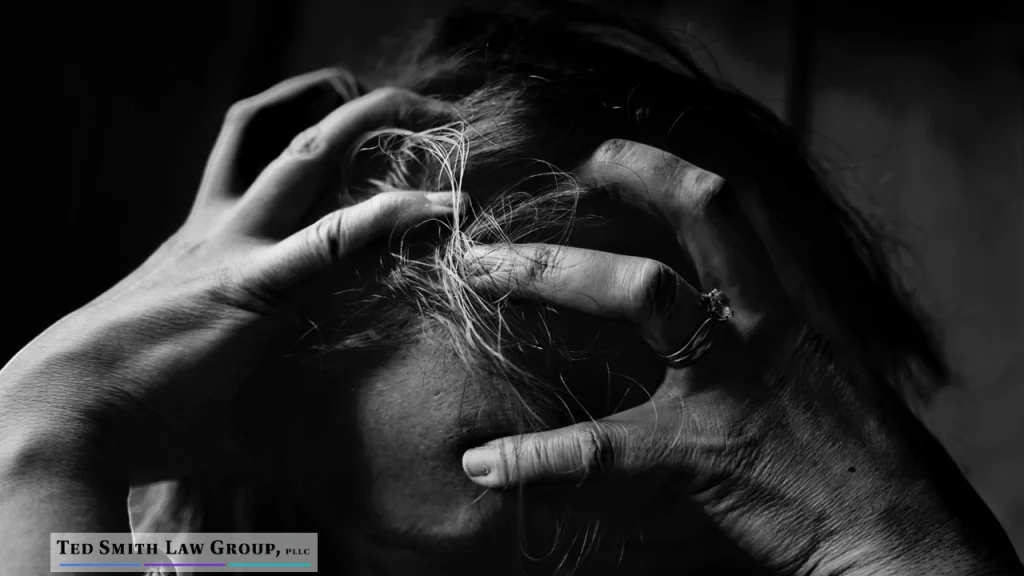Often, after receiving medical attention as a result of a vehicle accident, your doctor will describe your injuries using confusing medical terms of art. Frequently, after a car accident, you may hear your doctor refer to a “TBI” or traumatic brain injury. A traumatic brain injury is caused by a bump or jolt to the head or neck area, disrupting normal brain function. According to the American Association of Neurological Surgeons, about 1.7 million cases of TBI occur in the U.S. every year. Approximately 5.3 million people live with a disability caused by TBI in the U.S. alone. After an accident, it is important to fully understand not only the mechanism of injury, but the treatments available.
WHAT IS A TRAUMATIC BRAIN INJURY?
Traumatic brain injuries or “TBI” is a catastrophic medical condition which effects people on multiple levels, including physically, psychologically, or even socially. Because TBI involves the brain, a TBI can affect every aspect of the human condition.
There are generally two types of TBI: open head injuries and closed head injuries. An open head TBI is where there has been an impact to the head which results in the skull being cracked or penetrated. A closed head TBI, however, are those head injuries which are not easily identifiable, such as a concussion. In the instance of a closed head TBI, due to a jolt or impact, the brain slams against the inside of the skull and then bounces to the opposite side of the skull.
In addition to open head and closed head injuries, the Brain Association of America has also identified a number of other brain injuries one could suffer as a result of trauma.
IDENTIFYING A BRAIN INJURY
The best way to identify a brain injury is through your physician, as brain injuries can manifest themselves in a number of different ways. Specifically, symptoms of a brain injury can vary greatly, but may include:
- Vomiting
- Lethargy
- Headache
- Confusion
- Paralysis
- Coma
- Loss of consciousness
- Dilated pupils
- Vision changes (blurred vision or seeing double, not able to tolerate bright light, loss of eye movement, blindness)
- Cerebrospinal fluid (CSF) (which may be clear or blood-tinged) coming out of the ears or nose
- Dizziness and balance problems
- Breathing problems
- Slow pulse
- Slow breathing rate, with an increase in blood pressure
- Ringing in the ears or changes in hearing
- Cognitive difficulties
- Inappropriate emotional responses
- Speech difficulties (slurred speech, inability to understand and/or articulate words)
- Difficulty swallowing
- Body numbness or tingling
- Droopy eyelid or facial weakness
- Loss of bowel control or bladder control
If you have any of these symptoms and suspect that you have suffered from a TBI, you should immediately seek medical treatment.
TREATING A TRAUMATIC BRAIN INJURY
After an accident, it is always important to immediately seek medical care—especially if your head or neck was impacted. When injured, the brain often swells. If left untreated, the brain could continue to swell and, if there is no room left in the skull, the brain may begin to push on your eye sockets resulting in a pinched optic nerve.
In emergent situations, such as after a car accident, treatment focuses on ensuring proper oxygen flow to the brain, stabilizing blood pressures, and preventing any further injury. Once stable, physicians have a wide-range of treatment options. These treatment options include therapy, medications, and even surgery.
WHY SHOULD I CONTACT AN ATTORNEY AFTER AN ACCIDENT?
If you have been injured in an accident, it is important to immediately seek medical treatment, as well as contact a personal injury attorney. Often, medical professionals, especially in an emergency situation, focus on the injuries presently before them. The attorneys at the Ted Smith Law Group do not just focus on your immediate needs, but rather focus on finding treatment options available to you for your long-term recovery and success.
The experienced personal injury attorneys at the Ted Smith Law Group, PLLC know what it takes to recover from a TBI, and will fight to ensure you get the help you need. Contact us today to discuss your situation and see how we can help you get on the road to recovery.







